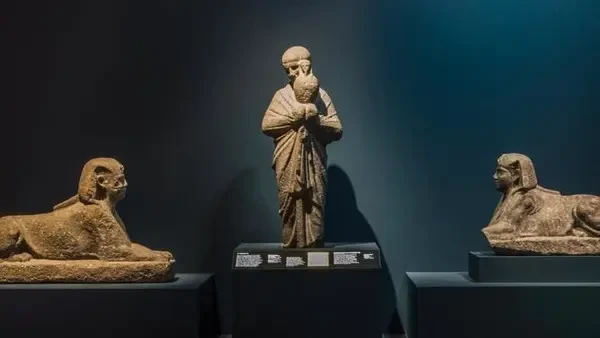The Remote Sensing Authority is organizing a workshop on addressing the challenges of soil salinity in Egypt
The National Remote Sensing and Space Science Authority
(NARSS) organized, in cooperation with the International Centre for the
Improvement of maize and wheat (CIMMYT), an international consultative workshop
on addressing the challenges of soil salinity in Egypt and its impact on
agricultural productivity, with the participation of representatives of several
international organizations, Egyptian universities and research centers.
The President of the National Authority for Remote Sensing and Space Science, Dr.
Islam Abu Al-Magd, reviewed the efforts of the Egyptian State, the Ministry of
Higher Education and Scientific Research and the Agency for the Support of
Scientific Research in Remote Sensing and Space Sciences, which were vital
areas of the Egyptian State as it looked forward to a future based on space
technology and data, noting that the organization of the workshop reflected the
interest of various stakeholders in Egypt and their commitment to achieving
sustainability and development in the agricultural sector, emphasizing the
importance of international cooperation and the use of technology in addressing
complex environmental and agricultural challenges.
During the workshop, soil salinity monitoring and mapping techniques, both soil
and water, were presented, as well as solutions to the challenges of salinity
in Egypt, and their impact on agricultural crop productivity and the
environmental situation was studied.
The workshop included the identification of the main causes of salinity
problems in Egypt, including seawater intrusion into agricultural areas
adjacent to the Mediterranean Sea, inadequate drainage systems in some areas,
high evaporation rates and a review of the role of climate change in
exacerbating salinity problems in Egypt, where high temperatures and changing
rainfall patterns lead to soil degradation and water scarcity, thus increasing
the challenges of salinity.
The workshop also highlighted the use of GIS and remote sensing as valuable
tools for salt mapping in Egypt, through which salt hot spots could be
identified and targeted interventions implemented to mitigate their impact, as
well as highlighting the adverse effects of salinity on crop productivity in
Egypt and stressing the importance of addressing these issues; to ensure food
security and sustainable agricultural development in the country.
The workshop concluded that it was important to collaborate and cooperate with
relevant institutions, such as international organizations, research centres
and universities, to address the challenges of increasing soil salinity and its
impact on agricultural productivity and its impact on climate change, as well
as to emphasize the importance of adopting sustainable agricultural practices
and improving water management to effectively address salinity issues.
It should be noted that the workshop was attended by many international
organizations, research centres and Egyptian universities. Representatives of
the International Centre for the Improvement of maize and wheat (CIMMYT), the
Food and Agriculture Organization of the United Nations (FAO-Egypt), the
International Water Management Institute (IWMI), the International Centre for
Agricultural Research in Dry Areas (ICARDA), the Indian Council for
Agricultural Research (ICAR), the Arab Water Council (AWC), the Arab
Organization for Agricultural Development (AOAD) and the German Company for
International Cooperation (GIZ). A number of representatives of the National
Remote Sensing and Space Sciences Authority, the Water Management Research Institute
of the Ministry of Water Resources and Irrigation, the Land and Water Research
Institute and the Desert Research Centre of the Ministry of Agriculture and
Land Restoration also participated in the workshop.











